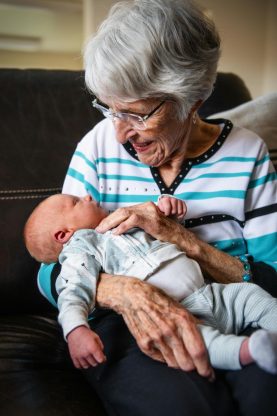Health and safety are of paramount importance when it comes to caring for children. Whether you are a parent or a babysitter, ensuring the well-being of a child should be your top priority. As accidents can occur unexpectedly, it is important for babysitters to possess the necessary skills to respond swiftly and effectively in an emergency situation. First aid and CPR skills are crucial in such instances, as they can potentially save a child’s life or prevent further harm. In this article, we will explore why these skills are essential for babysitters and how they can benefit both the caregiver and the child.
Table of Contents
- Understanding the Importance of First Aid and CPR Training for Babysitters
- Building Confidence and Preparedness in Babysitting
- Identifying and Responding to Common Childhood Emergencies
- Handling Choking, CPR, and Other Life-Saving Techniques
- Ensuring Child Safety and Well-Being in Babysitting Environments
Understanding the Importance of First Aid and CPR Training for Babysitters
Accidents can happen anytime and anywhere, even under close supervision. When babysitting, the responsibility of the caregiver extends beyond merely keeping a child entertained. It is crucial to be prepared for any unforeseen circumstances that may arise. First aid and CPR training equip babysitters with the knowledge and skills necessary to handle emergencies with composure and efficiency.
By undergoing this training, babysitters can gain the confidence needed to make quick decisions in critical situations. They learn how to assess injuries, provide immediate care, and contact emergency services when required. This knowledge ensures that they can respond appropriately to accidents or medical emergencies, reducing the risk of further harm or complications.
On-Demand Childcare in Your Neighborhood
Book a Sitter
Building Confidence and Preparedness in Babysitting
Comprehensive first aid and CPR training not only imparts essential lifesaving skills but also boosts the confidence of babysitters. Being well-prepared for emergencies instills a sense of control and calmness, allowing them to handle difficult situations with poise.
Moreover, parents often feel more at ease and trust their babysitters more when they know that they are trained in first aid and CPR. By investing in their own training, babysitters can differentiate themselves in the competitive babysitting market and offer an added layer of security and assurance to parents.
Identifying and Responding to Common Childhood Emergencies
Babysitters encounter various situations where their first aid and CPR skills become invaluable. Being trained allows them to identify potentially dangerous situations and take appropriate actions promptly.
One common childhood emergency is allergies. Babysitters trained in first aid are knowledgeable about recognizing allergic reactions and administering medication such as epinephrine auto-injectors. This knowledge can be crucial in preventing severe allergic reactions from turning life-threatening.
Another typical emergency scenario is falls, which often lead to bruises, sprains, or fractures. A babysitter skilled in first aid knows how to assess the severity of an injury and provide immediate care, such as applying ice packs or bandaging wounds, until further medical assistance can be obtained.

Handling Choking, CPR, and Other Life-Saving Techniques
Choking is a critical emergency that demands immediate action. It can occur when a child ingests a small object or food that blocks their airway. Knowing how to respond to choking can be lifesaving. Babysitters trained in first aid are taught how to perform the Heimlich maneuver, which can dislodge the object and restore normal breathing.
Cardiopulmonary resuscitation (CPR) is another crucial skill that babysitters should possess. In cases of cardiac arrest or drowning, time is of the essence. Learning CPR enables babysitters to provide chest compressions and rescue breaths, maintaining blood circulation and oxygen flow until medical professionals arrive.
In addition to CPR, babysitters learn other life-saving techniques, such as how to respond to burns, cuts, or head injuries.
These skills allow them to administer appropriate first aid treatment, minimizing the risk of further complications and promoting a safer environment for the child they are caring for.
Ensuring Child Safety and Well-Being in Babysitting Environments
Being prepared for emergencies not only enhances the caregiver’s ability to respond effectively but also ensures the overall safety and well-being of the child. Babysitters trained in first aid and CPR are equipped to recognize potential hazards and take measures to prevent accidents from occurring in the first place.
For instance, they learn how to create a safe environment by childproofing areas and removing objects that could be hazardous. Babysitters are also trained to be proactive in preventing accidents, such as keeping a close eye on children during water-related activities, including swimming or bathing.
Furthermore, they acquire the knowledge to provide appropriate first aid for minor injuries, such as scrapes, cuts, or insect bites. This not only alleviates pain but also reduces the risk of infection or other complications, ensuring the child’s speedy recovery.
Conclusion
First aid and CPR skills are indispensable for babysitters. These skills provide babysitters with the confidence, knowledge, and ability to handle emergencies swiftly and effectively. They help in identifying and responding to common childhood emergencies, allowing for immediate care and reducing the risk of further harm. Moreover, being trained in first aid and CPR enhances the overall safety and well-being of the child, as babysitters can create a safe environment, prevent accidents, and administer necessary first aid when required.
Parents should prioritize hiring babysitters with adequate first aid and CPR training to ensure the utmost safety of their children. For aspiring babysitters, acquiring these skills is not only a valuable asset but also a responsible commitment to the well-being of the children they care for.











